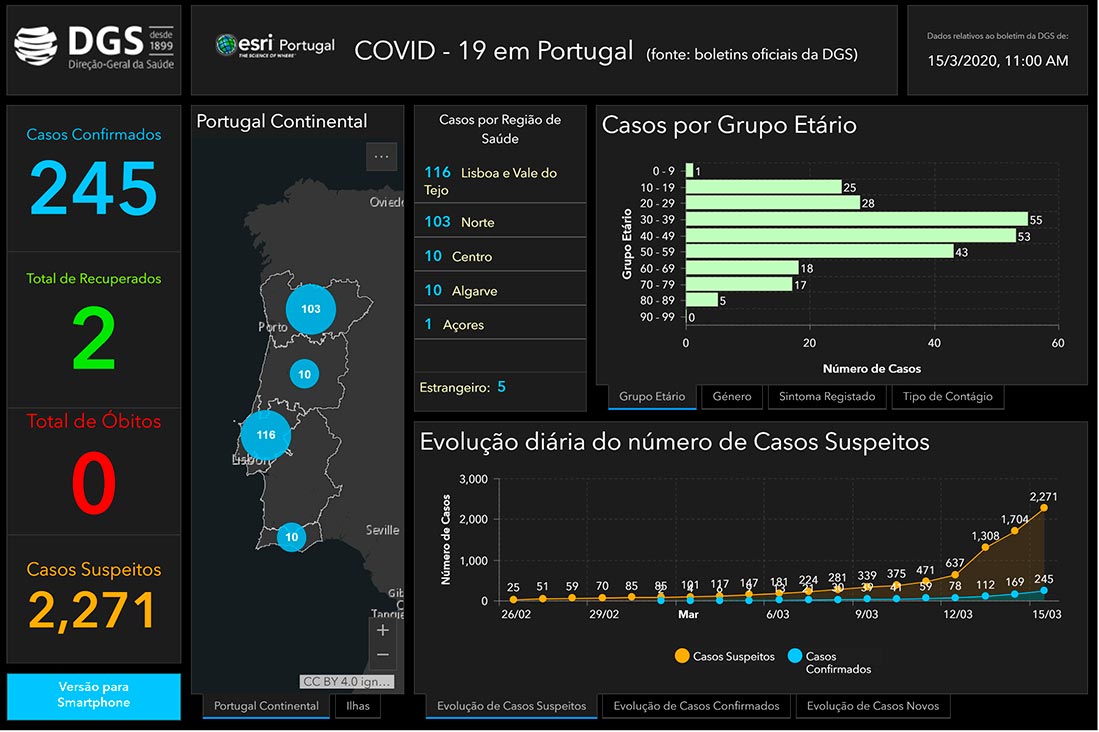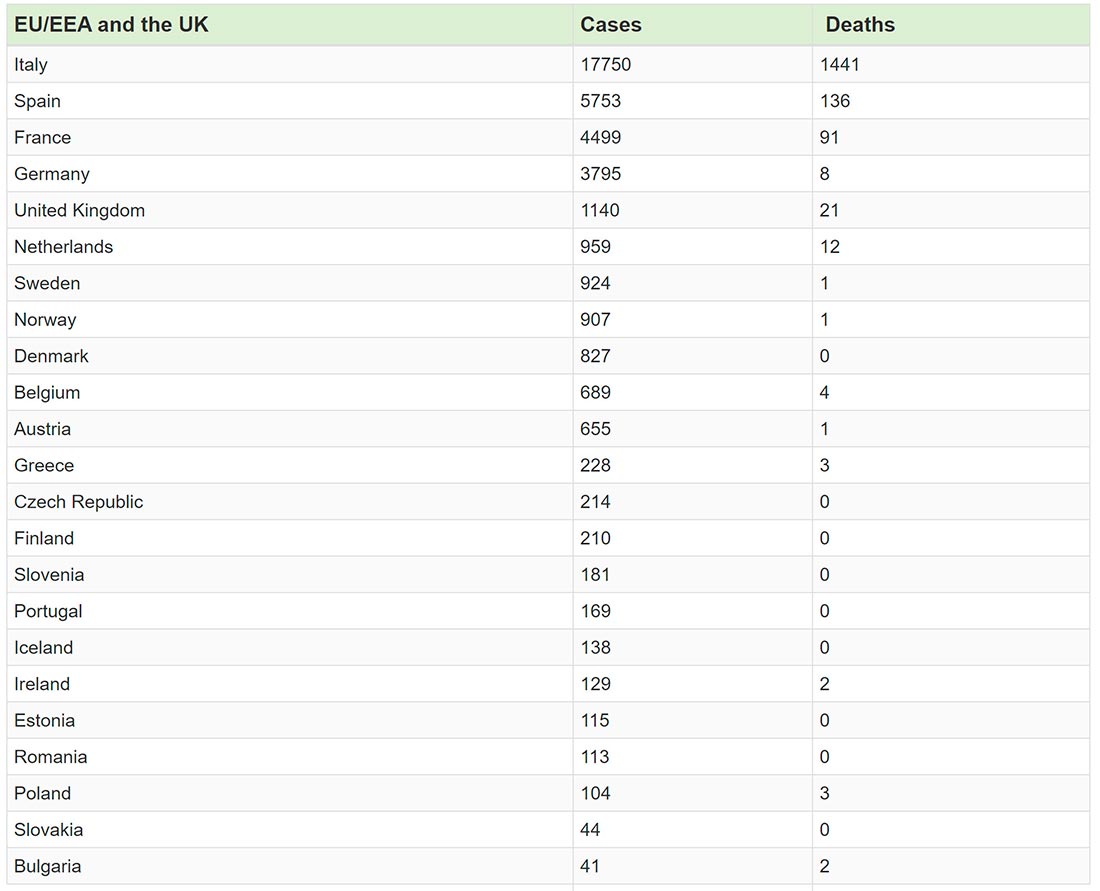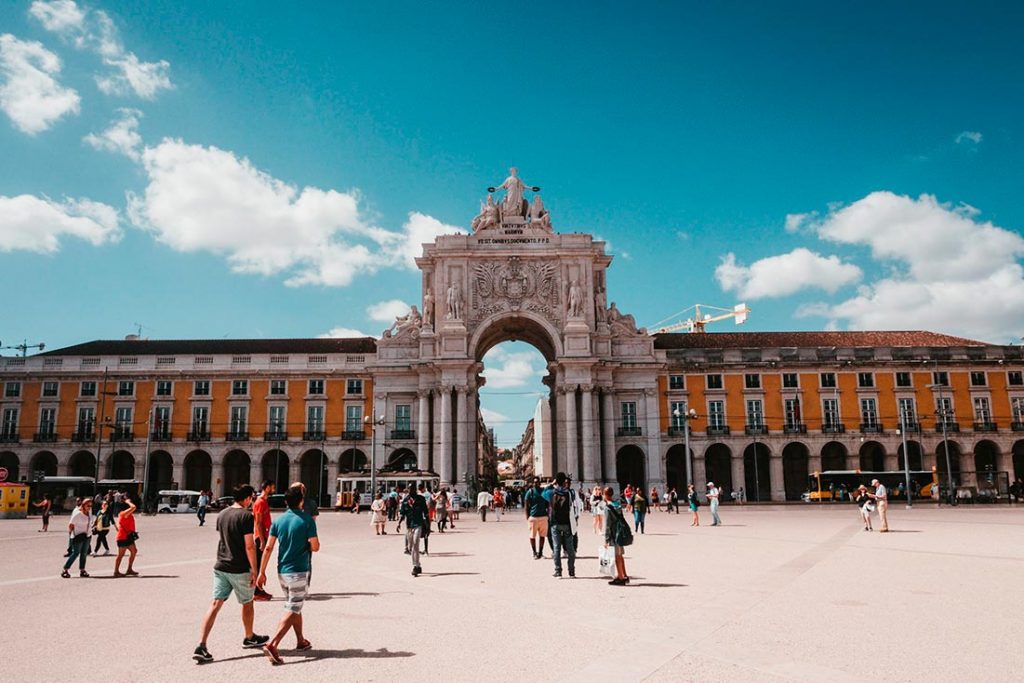Portugal, like many other countries in the world, has not left unscathed by the ongoing coronavirus epidemic, with the social and business landscape being transformed in a manner never seen before.
The Portuguese government has put a raft of measures in place to combat the spread of the virus and has announced several initiatives to partially shield struggling businesses, including those in the tourism sector, which is the lifeblood of the domestic economy.
The situation in Portugal, which is in a "state of alert" now, is less dire than that of other European countries like Italy and Spain where dozens of people have died. However, financial losses and economic disruption are inevitable in the nation of over 10 million people as a result of the outbreak.
Number of Cases in Portugal
According to Direção-Geral de Saude, Portugal's public health authority, 245 confirmed cases of coronavirus were registered as of March 15. Two patients have recovered, and there are 2,271 suspicious cases. No death has been recorded so far.
The confirmed cases have been registered in Lisbon and Vale do Tejo (116), Northern Portugal (103), Central Portugal (10), the Algarve (10), the Azores (1), and other areas (5). The highest number of cases have been reported in the age groups 30-39 (55) and 40-49 (53).

According to the statistics released by the European Center for Disease Prevention and Control, an independent agency of the EU, 39,768 cases have been registered in the EU/EEA and the UK, including 1,727 deaths as of March 15.
The hardest-hit countries in Europe are Italy with 17,750 confirmed cases and 1,441 deaths, Spain with 5,753 confirmed cases and 136 death, and France with 4,499 confirmed cases and 91 deaths.
When Europe became the epicenter of the outbreak outside of China, U.S. President Donald Trump decided to impose a travel ban on most visitors from the continent for 30 days. The decision has added to the increasingly widespread uncertainty and disruption for businesses.
Based on statistics published by the Center for Systems Science and Engineering at Johns Hopkins University on March 15, 162,687 have been infected worldwide. A total of 6,065 have died of coronavirus, while 75,620 have recovered.
The hardest-hit countries in Europe are Italy and Spain with 17,750 and 5,753 confirmed cases, respectively.
European Center for Disease Prevention and Control
The outbreak of COVID-19—a coronavirus-caused illness that originated in Wuhan, China, late last year—is considered one of the most significant public health crises in decades. It has spread far wider than Ebola did in 2014 and has been designated by the World Health Organization as a pandemic.
Portuguese Prime Minister Antonio Costa called the epidemic a threat to survival in a televised address to the nation. According to him, the state of alert will remain in place until April 9, when the situation will be re-evaluated.
Portugal's President Marcelo Rebelo de Sousa is in voluntary quarantine at home despite testing negative for coronavirus after he received a group of students from a school that is now closed following the detection of a student with COVID-19.
Compensation Measures
According to the reports published by Portuguese and foreign media, these are some of the major steps taken by the government to contain the virus:
- Classes throughout the education system from kindergartens to universities, both public and private, have been suspended.
- Some public offices, museums, cinemas, theaters, and monuments have been closed.
- Cruise ships are not allowed to disembark passengers except those who reside in Portugal.
- All passenger flights between Portugal and Italy have been suspended.
- Portugal and Spain have decided to halt tourism across their 1,200-kilometer shared border. The commute of workers and the exchange of goods across the land border are still allowed.

- Night clubs have been shut and capacity restrictions have been imposed on entry to restaurants and shopping malls to reduce contact among people.
- Large indoor and outdoor events have been prohibited.
- The government has directed a quarantine of all passengers arriving at the Portuguese islands of Madeira and the Açores.
- Visits to all nursing homes throughout the country have been restricted.
- Bars have been ordered to close at 9 p.m. every night.
- A ban has been imposed on drinking alcoholic beverages in the street, a move aimed at dispersing the crowd.
Support for Workers
In the face of the growing outbreak, the government has also taken a patchwork of measures to help workers and those who will stay at home due to the shutdowns.
For instance, workers who have to stay at home to accompany their children of up to 12 years of age will receive 66% of their base salaries (33 percent paid by the employer, 33 percent paid by Social Security), the Portugal News reported.
The daily also says exceptional financial support will be provided to the self-employed amounting to one-third of their average earnings. The requirement to pay monthly "contributions" has been deferred.
According to Mirror Online, the ruling party has decided to put together a €2.3 billion package, grant soft loans, and delay some tax payments to support businesses during this testing time.
The Portugal News wrote that the country may raise €1.8 billion in European funds to support the sectors affected by the situation and that the government has earmarked €200 million in loans to help small and medium-sized companies deal with the outbreak.
Workers who have to stay at home to accompany their children of up to 12 years of age will receive 66% of their base salaries.
Tourism Sector
The growing fear of contagion, which is scaring holidaymakers away, is mainly taking its toll on Portugal's vital tourism sector.
Millions of foreign tourists visit Portugal annually, and the tourism sector—which helped the Atlantic coastal country recover from the 2010-14 debt crisis—accounts for nearly 15% of gross domestic product.
The Portuguese Hotels Association (AHP) said in a recent report that the country's hotel sector could lose 30%-50% of its revenues, an equivalent of about €800 million, between March and June, according to Reuters. It added that over 41% of hotels across the country reported cancellations in early March.

AHP head Raul Martins said the decision by the U.S. president to impose travel restrictions on Europeans will make things "even worse" as a large chunk of the revenues of Portuguese hotels comes from the North American market.
According to media reports, Portugal's flag carrier TAP has suspended 2,500 flights scheduled for March-May due to a fall in demand for travel.
The Portugal News has reported that the Portuguese government has decided to provide a credit line of €60 million for micro-companies in the tourism sector worth 60 million Euros to help them tackle the economic consequences of the epidemic—which has enveloped the global economy at a rapid pace.

